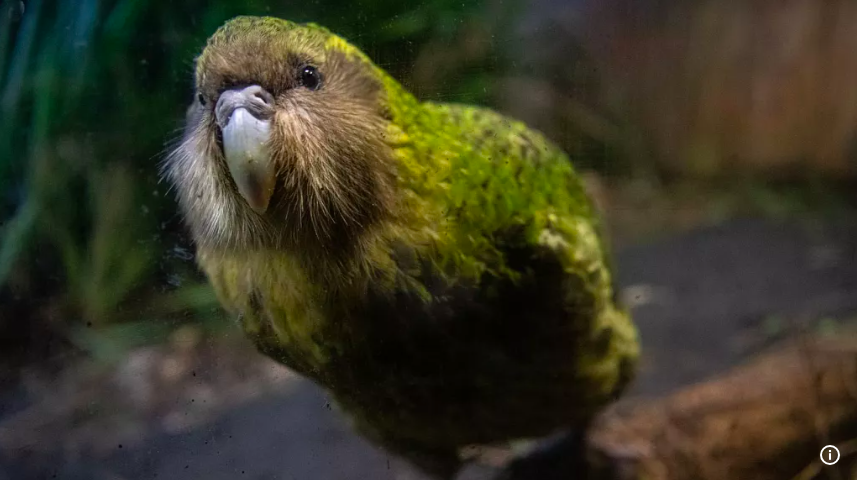How Artificial Insemination Is Saving New Zealand’s Endangered Kākāpō Parrot

How Artificial Insemination is Giving New Life to New Zealand’s Endangered Kākāpō
In the dense, predator-free sanctuaries off New Zealand’s coast, one of the world’s most unusual and endangered birds is getting a second chance—thanks to science, patience, and a global team of experts. The kākāpō, sometimes called the "owl-parrot" for its round face and nocturnal habits, is the world’s heaviest parrot and the only one that cannot fly. It’s also, unfortunately, one of the least reproductively successful.
Once abundant across New Zealand, the kākāpō’s numbers plummeted in the 20th century due to hunting, habitat loss, and the introduction of invasive predators like cats, rats, and stoats. By the 1990s, the species was teetering on the brink of extinction. But conservationists didn’t give up. In a series of daring and carefully coordinated efforts, the remaining birds were relocated to predator-free islands, and new breeding programs were launched.
Despite these efforts, however, breeding remained a challenge. Kākāpō reproduce infrequently, tied to the fruiting cycles of native trees like rimu, which only happens every few years. Even when they do breed, the odds are low: only 40% of eggs hatch, and 20% of males never father any chicks. With only 142 kākāpō counted in 2019, every egg—and every gene—counts.
A Groundbreaking Reproductive Breakthrough
That’s where artificial insemination (AI) comes in. In 2009, New Zealand's Department of Conservation achieved a world first: the successful artificial insemination of a wild bird species. The procedure helped bypass natural breeding limitations and allowed scientists to selectively pass on rare genetic lines.
But despite this milestone, AI proved difficult to replicate. For a full decade, the method failed to produce more chicks, largely due to the complexities involved with both collecting semen from kākāpō males and inseminating females at the optimal time.
In 2019, the Department of Conservation called in German parrot fertility experts to assist. That year, their joint efforts finally bore fruit—four chicks were successfully born using AI techniques, including offspring from two previously non-breeding males. One of these males carried rare “Fiordland” genes, making the success especially significant for maintaining genetic diversity within the tiny population.
Inside the Unusual Process of Kākāpō Artificial Insemination
Unlike other parrots, the kākāpō doesn’t form pair bonds. It follows a polygynous "lek" system, where males gather in specific areas to perform elaborate booming calls throughout the night, hoping to lure in females. Natural breeding, therefore, requires both luck and timing—and often leaves genetically important males out of the loop.
Artificial insemination bypasses this natural selection process, but it comes with its own challenges.
To collect semen, researchers gently restrain the male kākāpō by placing a towel over its head and wings and positioning its upper body in a modified water bottle. Then, by rhythmically pressing the abdomen, they sometimes induce ejaculation. For more reluctant birds, an electrical stimulation device—a specially designed "multipolar probe"—is used, a method still under patent development in Germany.
Once semen is collected, it’s tested for viability and, if suitable, used for immediate insemination. Timing is critical: females must be inseminated at the exact right stage in their ovulation cycle, requiring constant observation and expert handling.
Long-Term Goals: Fertility and Genetic Diversity
Artificial insemination is not just about producing more chicks—it’s about producing the right chicks. Many founder birds, especially those with unique genetic backgrounds, are underrepresented in the current gene pool. AI allows conservationists to selectively increase these lines, improving the genetic health of future generations.
“Artificial insemination is an important tool to tackle these issues, since it helps improve fertility and enables preservation of important genetic diversity from individuals which don’t mate naturally,” says Dr Andrew Digby, Science Advisor for the Kākāpō and Takahē Recovery Program.
Following additional AI successes in 2022, the Department of Conservation is preparing to implement the technique again during the 2026 breeding season. They hope this continued investment in reproductive science will accelerate the recovery of a species once thought doomed.
Conservation, Community, and Hope
The kākāpō is more than just a quirky bird—it’s a national treasure in New Zealand, emblematic of the country’s unique biodiversity and the challenges of conservation in an age of environmental change. Its recovery journey has captured global attention, even earning it the title of “Bird of the Year” in a widely followed conservation campaign.
But saving the kākāpō is not just about winning popularity contests. It’s about science, collaboration, and patience—and the understanding that sometimes, preserving nature requires stepping in where nature struggles to cope.
With artificial insemination now a reliable part of their toolkit, conservationists have one more lifeline to offer this flightless forest giant. And for the kākāpō, each successful chick is more than just a number—it’s a step back from the brink, and a promise that the song of the booming male may echo through New Zealand’s forests for generations to come.
- Art
- Causes
- Crafts
- Dance
- Drinks
- Film
- Fitness
- Food
- Spiele
- Gardening
- Health
- Startseite
- Literature
- Music
- Networking
- Andere
- Party
- Religion
- Shopping
- Sports
- Theater
- Wellness


